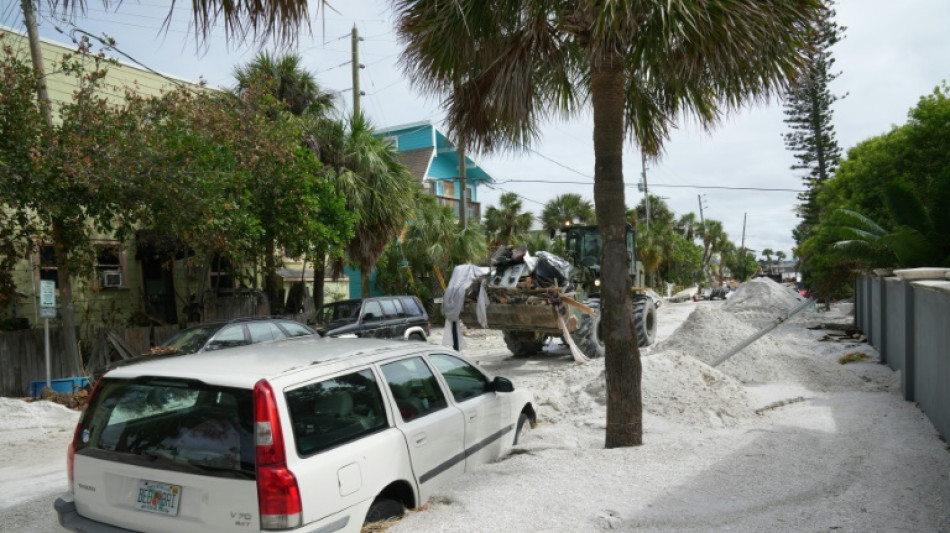

Stay and 'you are going to die': Florida braces for next hurricane
Weather-weary Florida girded Tuesday for a hit from Hurricane Milton, a monster storm packing furious winds and the threat of walls of water gushing inland.
As the second huge hurricane in as many weeks rumbled toward the state's battered west coast, a sense of looming catastrophe spread as people raced to board up their homes and evacuate to shelters or anywhere they could.
As of Tuesday morning, Milton was generating maximum sustained winds of 145 mph (230 kph) and the threat of as much as 15 feet of storm surge, the National Hurricane Center said, calling it an "extremely dangerous" storm, and urging people to heed evacuation orders.
The Category 4 hurricane was to move just north of Mexico's Yucatan peninsula on Tuesday, it said.
After weakening from a maximum Category 5 overnight, it is forecast to make landfall Wednesday night on the coast of Florida and remain powerful as it churns across the state.
At a press conference Tuesday, Governor Ron Santis ticked off town after town and county after county that are in danger.
“Basically the entire peninsula portion of Florida is under some type of either a watch or a warning,” he said.
The mayor of Tampa, a metropolitan area of three million that was hit hard last month by Hurricane Helene, was blunt in her own assessment.
"Helene was a wake-up call. This is literally catastrophic," Mayor Jane Castor said on CNN.
"I can say this without any dramatization whatsoever: If you choose to stay in one of those evacuation areas, you are going to die."
- 'Just horrific' -
One Florida TV meteorologist choked back tears as he talked about how Milton had intensified rapidly from a Category 1.
"I apologize," weatherman John Morales said, as he surveyed the data. "This is just horrific."
The National Weather Service said that Milton could be the worst storm to hit the Tampa area in more than 100 years.
Scientists say global warming has a role in these intense storms as warmer ocean surfaces release more water vapor, providing additional energy for storms, which intensifies their winds.
Communities hit by the deadly Hurricane Helene, which slammed Florida late last month, rushed to remove debris that could become dangerous projectiles as Milton approaches.
The back-to-back hurricanes have ignited political bickering ahead of the upcoming US election.
DeSantis, a conservative known to clash with the federal government, came under fire after broadcaster NBC reported he was ignoring phone calls from Vice President Kamala Harris on the Helene recovery.
DeSantis did speak to President Joe Biden about the Milton preparations, the White House said.
Harris slammed the Republican governor for "playing political games."
Former president Donald Trump has tapped into real frustration about the federal response after Helene and fueled it with disinformation, falsely claiming disaster money had been spent instead on migrants.
In Mexico's Yucatan, workers boarded up glass doors and windows, fishermen hauled boats ashore and schools were suspended.
In the southeastern United States, emergency workers are still struggling to provide relief after Helene, which killed at least 230 people across several states.
It hit the Florida coastline on September 26 as a major Category 4 hurricane, causing massive flooding in remote inland towns in states further north, including North Carolina and Tennessee.
Helene was the deadliest natural disaster to hit the US mainland since 2005's Hurricane Katrina, with the death toll still rising.
A.C.Netterville--NG



